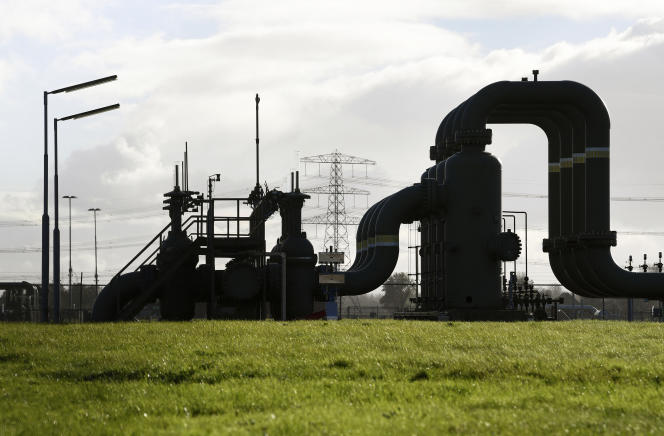After sixty years of exploitation which will have brought in some 400 billion euros, the Dutch State has decided to close on 1er October, the gas fields of the Groningen region, the largest in Europe, in the north of the Netherlands. Already announced several times, this decision would be final this time, according to the Secretary of State for Mines, Hans Vijlbrief.
His communication, Friday, June 23, was however greeted with skepticism by the inhabitants of a region where the drilling damaged thousands of homes. “The case is not over: the drilling stops, but the eleven extraction zones are not all closed”, emphasizes the citizens’ movement Groninger Bodem, which brings together several thousand aggrieved people. If the exploitation of the gas was actually stopped on the scheduled date, the field should not be completely closed until 2024. And, by then, five wells will continue to operate at a minimum.
Over time, some thousand earthquakes have been recorded in the region, which has become cautious in the face of the promises of the authorities who, as early as 2013, had put projects to reduce production on the table. In 2019, a plan providing for a total closure within three years was tabled. Decision abandoned at the beginning of 2022, when the State invoked the fact that 5 million households in northern Germany were dependent on the supply by Groningen. Another constraint: the imported gas, which is highly caloric, must be reprocessed to be made compatible with the kingdom’s installations, which require low-calorie gas.
“Failures of an unknown magnitude”
Mr. Vijlbrief promised that “the cause of misfortunes” of the province would indeed be eliminated, and that the decision would be confirmed by law. “Except in exceptional circumstances”, such as a period of extreme cold or major geopolitical upheavals, he added. What elected officials in the province equate to new conditions that they consider unacceptable. Fearing therefore a new postponement, the Groninger Bodem movement considers, for its part, that “security of supply is still considered more important than the security of many inhabitants”.
They are waiting to see the promises of compensation made following the report tabled in February by a parliamentary commission of inquiry. Twenty-two billion euros had been promised to them for the rehabilitation of their homes. The region demanded “at least thirty”in order to also ensure the economic reconversion and the renewal of the infrastructures of a literally devastated zone.
You have 36.5% of this article left to read. The following is for subscribers only.
